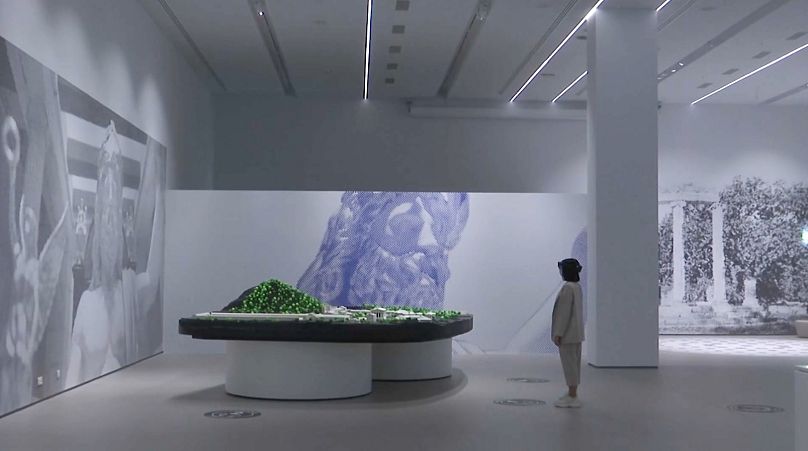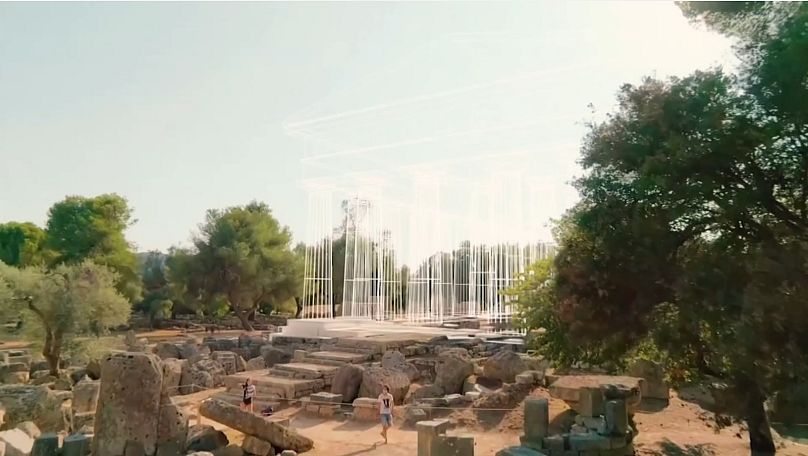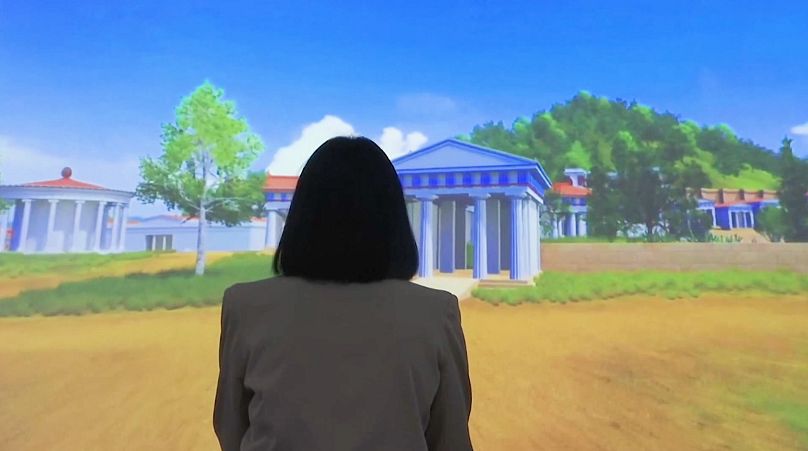What would it be like to walk around the ancient site of Olympia at the time the original Olympic Games were held? A partnership between Microsoft and Greece's Ministry of Culture and Sport is offering visitors the answer, launching an immersive tour at one of the world's major archaeological sites.
Stepping back in time… through your smartphone.
 ADVERTISEMENT
ADVERTISEMENT
 ADVERTISEMENT
ADVERTISEMENT
A new programme at the site of Ancient Olympia is harnessing Augmented Reality technology which designers say has the potential to transform education, business and entertainment.
Greece's Ministry of Culture and Sport worked with Microsoft to map and build virtual representations of Olympia, a site used for nearly a thousand years to host the games in ancient Greece which served as the inspiration for the modern Olympics.
Users can tour the site remotely or in person with an online presentation and an augmented-like mobile app, seeing virtual re-creations of temples and competition areas as they walk through the ruins.
At the Olympic Museum in Athens, visitors can use Microsoft's mixed-reality HoloLens headsets which overlay visual information on top of what the viewer sees.
Tilt up and a towering statue of Zeus plated in ivory and gold comes into view; turn left and peer into the workshop used by the famed sculptor Phidias at the ancient sanctuary more than 2,400 years ago.
27 monuments virtually recreated
Greek Prime Minister Kyriakos Mitsotakis is joining a group of schoolchildren using the app for the first time.
Seventh and eighth-graders from a local school pinch, zoom and rotate the monuments which are brought to life on their smartphones, flipping between inside and outside views of sites where athletes once competed in running, javelin throwing, boxing and other events.
"We partnered with Microsoft using very advanced Augmented Reality tools to give the opportunity to visitors using their smartphone to superimpose upon the existing antiquities a world that essentially goes back 25 centuries. So the ability to actually virtually recreate 27 ancient monuments, to hear the story of what they're all about, I think is opening up a completely new way of experiencing our cultural heritage," explains Greek Prime Minister, Kyriakos Mitsotakis.
Microsoft started the project 18 months ago, scouring Olympia with drones and sensors, after reaching an agreement with the Greek government to build three data centres in greater Athens in an investment to reach up to $1 billion (€ 873,8 million).
"We have taken photos from drones and earth cameras, and we have used the Microsoft AI technology to get hundreds of thousands of pictures to create the solid surface of how the place is today and how the monuments look. And then we took the input from the archaeologists and together with our technology, we utilized and we synthesized to make the best approximate in how things looked more than 2000 years ago," explains Theodosis Michalopoulos, General Manager at Microsoft Greece, Cyprus and Malta.
Ancient Greece in the metaverse
Tech companies are racing to deliver mixed reality platforms and gear that blends the internet with everyday experience, with glasses doubling as personal projectors to provide extra information like route options for cyclists, player stats for fans at sports venues, or virtual fitting rooms at home for shoppers.
It's part of what's being called the "metaverse," a futuristic online world aimed at merging real and virtual life.
Here at Olympia, student Panagiotis Christopoulos likes the fact this technology means people from all over the world can virtually visit ancient Greece:
"I think other kids around the world, people all over the world, can see the monuments that are at Ancient Olympia if they are not lucky enough to visit and they can have a fantastic experience."
Microsoft's HoloLens headset costs around $3,500 (€3,049) and is typically used by people like doctors or those maintaining jetliners but a convergence of cheaper eyewear, ever-shrinking processing power and faster internet connections is starting to put it within mainstream reach, experts say.













